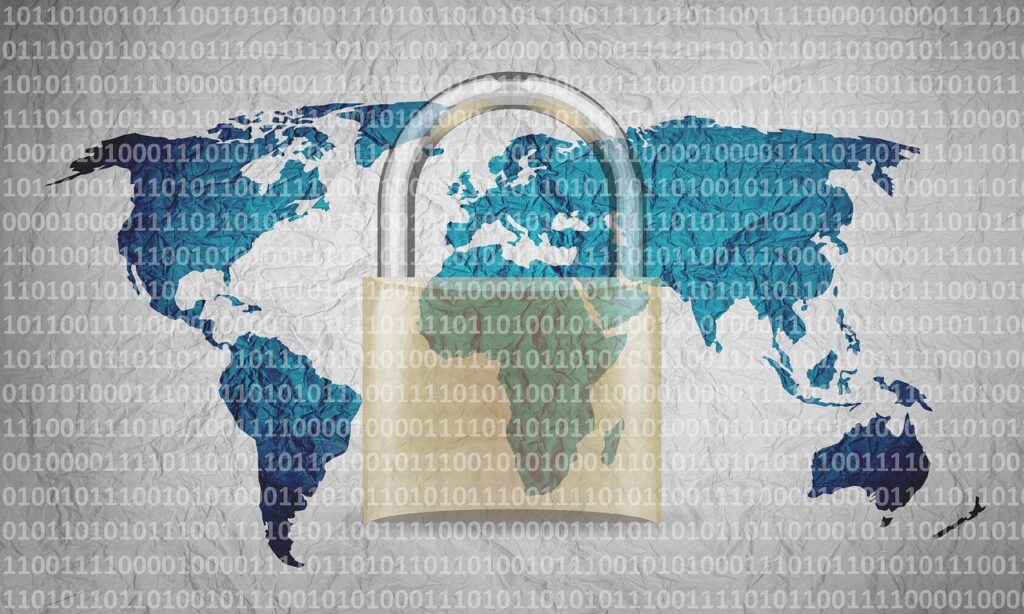As with many industries, the healthcare industry has become increasingly globalized over the past couple of decades. Although this has brought about a slew of benefits — ranging from preventive healthcare strategies, coordinated health responses, and more access to care in rural areas— there are risks. Cybersecurity issues are some of the largest and most worrisome. Interconnected healthcare systems can substantially increase the risks of a major security breach that exposes personal data from across the globe.
Addressing these cybersecurity risks is one of the great challenges to making the whole system work well for everyone. Developing realistic strategies to secure personal healthcare information both within cloud-based databases associated with healthcare facilities and within wearable device data logs is imperative. Working to solve some of these thorny problems is achievable with the right emphasis on improving lives.
The Changing Nature of Healthcare
There is no mistaking that advancements in technology are changing healthcare down to its very core. The rise of telehealth, for example, has been a complete and total game changer for hundreds of thousands across the globe. Telehealth services have enabled many people in rural environments to receive routine check-ups and pre-screening consultations online, which has saved many families from having to make expensive trips to the city for healthcare.
In some instances, the availability of telehealth services can be the difference between getting the healthcare services that are desperately needed and going without for years. These options can help prevent minor things from becoming major healthcare problems and can add years to people’s lives.
As with many doctor-patient interactions, healthcare records are also being managed online more and more frequently. This makes it far easier for different healthcare institutions to share important information about patients and connect on appropriate treatments. It has also made it simpler for patients to access their health records and documents. This can make patients feel as though they have more control over their healthcare options. Having these documents in an online setting means they can be pulled up nearly anywhere, anytime, for any reason.
New technologies could help to play a role in this effort. For example, wearable technologies are widely used by people to track everything from the number of steps they’ve taken in a day to the quality of sleep they are getting every night. This tech could also be utilized to help track important markers during disease outbreaks, such as a rise in body temperature that could signify infection. Sharing this information on a larger scale could help experts track disease spread and monitor infection rates.
Perhaps one of the most exciting new technological developments in our world right now is the rise of artificial intelligence (AI). AI software is impacting every industry, including healthcare. Today, the tech can be utilized in several ways — from the chatbots that answer basic healthcare questions to robots assisting surgeons in the operating room.
Increasingly Complex Security Challenges
Of course, each and every one of these powerful new technologies comes with its own set of complex security challenges. For instance, breaches in healthcare information systems can expose private health record information saved in cloud-based databases. Also, AI technologies are not immune to hackers with ill intent. All of these circumstances can pose a dangerous risk to our health and personal information privacy and could lead to negative health outcomes for some sectors of the global population.
These risks can become even more apparent during a large-scale emergency. The COVID-19 pandemic was a perfect example. The number of cybersecurity attacks increased drastically during the height of the pandemic. Some of this could be in part due to the monumental increase in healthcare funding. However, attacks increased across the spectrum of different industries, suggesting that cybercriminals attempted to take advantage of the global distraction of the pandemic at all levels.
Although preparation for a national or global pandemic is discussed by national security experts annually, it seems many nations have still failed to seriously prepare for one. The COVID-19 pandemic was a real wake-up call regarding the intelligence effort associated with health crises. The challenges with tracking, assessing, and responding to a global healthcare crisis are significant, and most countries are still unprepared for the next crisis to occur.
Safeguarding International Healthcare
Responding to healthcare security challenges in a global environment is a process that isn’t necessarily going to fall into place overnight. Rather, developing a strategy for preparedness and information protection will be a long game and require regular updates. Meeting these challenges will take real work and dedication from experts across the globe.
Research suggests that cybersecurity investment is not a high priority for over 60% of hospitals in the U.S. alone. Changing this narrative globally is a critical step to safeguarding healthcare data and information. Therefore, the first step is education. Hospitals and healthcare workers should receive regular cybersecurity training to learn about the latest strategies cybersecurity criminals use to infiltrate their data. Armored with this education, employees and hospitals will be able to minimize as many entry points as possible.
From there, small steps forward, such as requiring multi-factor authentication, maintaining antivirus software, or having an offline backup of sensitive information, can make a big difference at a relatively low cost.
Novel approaches to healthcare security could also play an important role in making globalized healthcare all it can be. For instance, a Zero Trust strategy could help protect healthcare information through security enforcement and network control policies. The strategy essentially operates on a principle of “never trust, always verify,” which pushes those accessing accounts to prove they aren’t accessing unauthorized in multiple ways.
In Conclusion
Global healthcare initiatives have exceptional power to improve health outcomes in every corner of the world, especially when combined with some of the innovative technologies that are now becoming available to everyone. As with every technology, there is a significant risk of data and information privacy loss. Fortunately, many experts are working diligently to step up intelligence gathering and cyber security protections in the healthcare realm, which will benefit everyone in the long run.



